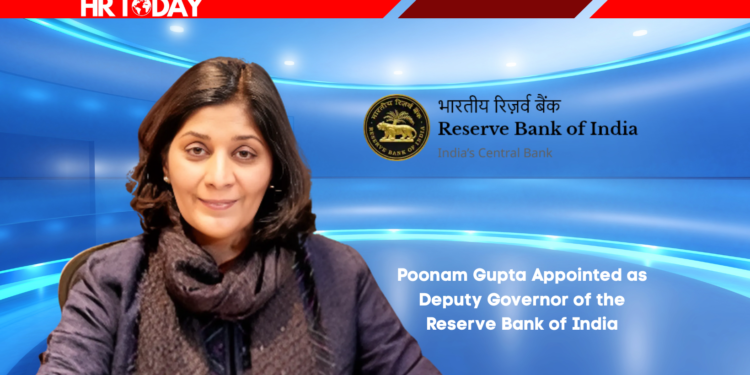Mumbai, Maharashtra, India, April, 2025 — Poonam Gupta has been appointed as the Deputy Governor of the Reserve Bank of India (RBI) for a term of three years, succeeding Michael Patra as the central bank undergoes a leadership transition. Her appointment comes just ahead of the upcoming Monetary Policy Committee (MPC) meeting scheduled for April 7–9, 2025, placing her at the heart of key macroeconomic deliberations.
Poonam currently serves as the Director General of the National Council of Applied Economic Research (NCAER), India’s leading economic policy research institute. She is also a member of the Prime Minister’s Economic Advisory Council and serves as Convener for the Advisory Council to the 16th Finance Commission. Her return to a policy-making institution underscores her deep expertise in macroeconomics, public finance, and financial stability.
Previously, she held senior positions at both the International Monetary Fund (IMF) and the World Bank, where she made significant contributions to research on global markets, poverty, and equitable growth. During her tenure at the World Bank, she held multiple roles including Lead Economist for India and Lead Economist, Global Macro and Market Research at the International Finance Corporation (IFC).
Beyond her institutional leadership, Poonam has served on several advisory boards and committees. She is a board member of the National Institute of Public Finance and Policy (NIPFP) and the Global Development Network (GDN) and contributes to the World Bank’s advisory groups on ‘Poverty & Equity’ and the ‘World Development Report’. She has also worked closely with NITI Aayog and the Federation of Indian Chambers of Commerce & Industry (FICCI), and chaired the Task Force on Macroeconomics and Trade during India’s G20 Presidency.
The Reserve Bank of India (RBI) is the nation’s central bank, established in 1935. Headquartered in Mumbai, the RBI plays a critical role in formulating and implementing India’s monetary policy, issuing currency, managing foreign exchange, and maintaining financial stability. As the country’s principal banking regulator, the RBI is also responsible for fostering a sound and inclusive financial system that supports economic development.
Read Also : HR Is Not a Support Function—It’s the CEO’s Most Powerful Growth Engine
The Fine Balance: Navigating Work, Life, and Mental Wellbeing
From Gatekeeping to Gateway Building: Transforming How Organisations Create Access
Leadership In Talent Management: A Powerful Driver for Economic Growth












